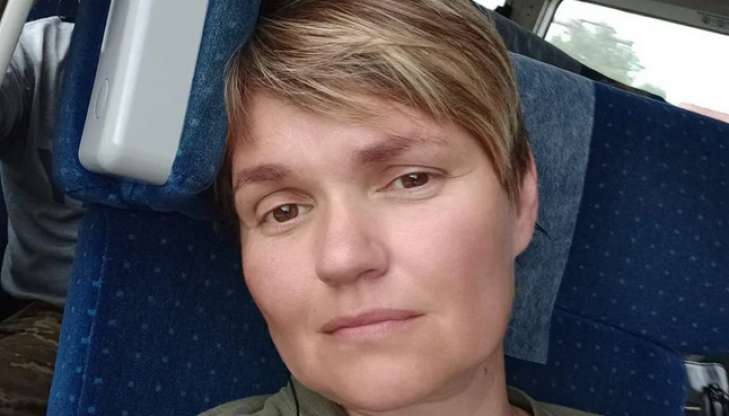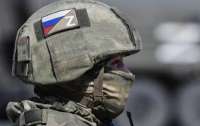We are all afraid of those who are waiting for us from the war - a servicewoman

She said that her children were able to get out of the occupation on their own, and she didn't even dare to ask how they managed to do it. It seemed then that their separation was over, but as time showed, it was just beginning.
"There was another year and a half ahead of me, which I would spend at the front. A year and a half during which we would only see each other for a few days. And long hours of communication via video link, thank the great Starlink. All the while we would continue to happily lie that everything was fine," the servicewoman said.
I could only guess how they really lived. What nightmares they have at night. How they live from connection to connection. How they live in a foreign city. And later, how they learn to live again in their own. How they feel.
"Why don't you come back? You have five children. They'll let you go for sure. Do you realise how much you're needed here? You just don't want to?" - told me my older, fully grown 27-year-old daughter, - " these words were painful. I didn't have the energy to explain that they are the most important people in my life. And that's why I'm trying to make sure they stay alive, safe and in their country. And that more than anything, I want to go home. But behind my pain, from fatigue and hurt at the misunderstanding, I didn't hear what she was really trying to say: "I'm so scared for you that I'm so angry with you".
"When you come back, I don't want us to live at home. Let's stay at Grandma's," the teenage son finds it a little easier to articulate how he feels. He honestly says that everything at home reminds him of the hardest time in his life. When the big war, the occupation, the absence of his parents and taking care of his younger sister all came upon him at the same time. And this "I don't want to live at home" says much more about him than "I'm doing well at school, I'm doing well, don't worry".
Nine-year-old Varyka yells at her grandmother and older sister that they have no right to tell her anything. They are not her mum. And tries to leave the house several times. Either in earnest or in the hope of getting a beating and once again shouting that she will only obey her mum.
My own mum looks at the camera with red eyes and smiles cheerfully: "You don't worry, the kids are doing great. We're doing fine. We're doing fine. You just take care of yourself. We can't do it without you."
How many times during this time the ambulance will come to her and how many times the children will be frightened, not knowing what to do with the pressure attacks, I will know much later. And then, most likely, not all of them ...
...A year and a half later, I will be trying to remember how to use the mobile phone that miraculously survived in my pocket. It seems familiar, but I can't figure out how to call home. Someone on the stable will help me dial the number. And I gather all my strength to say in a cheerful voice: "Mammy, I'm fine. We're both hurt, but we're stable. The phone's dying, I'll call you when we get to the hospital. You just figure out how to tell the children so they won't worry."
I was sure they'd be scared. But they were happy. It's almost impossible to believe, but they were glad we were hurt. It meant to them that we were alive, already safe, and could be seen soon. I can't imagine what kids have to go through to be happy about being wounded. I really can't.
And then the long journey towards each other began. And I realised one obvious thing that I had hardly thought about before. There are a whole bunch of manuals and programmes that teach civilians to understand those who have returned from the front. It all makes sense. A person who has been through a war drags it home in them. Beyond his will. That's why my households are understanding of the fact that I snap at trifles; I am silent most of the time; I shout at night; I can fall down with a headache in the middle of the day; I carry two first-aid kits and tourniquets - in all my pockets; I forbid to go to places where there are many people, and in general I behave extremely strangely, as for calm Kiev. They know what is happening to me. And they know how to react to it. They have been taught. And that's cool.
An old friend of mine, who was written off after being severely injured, is now going through an even more difficult phase - he's on the verge of divorce. Because it's hard for him, he's in pain, he wants total commitment from his family. And the wife, who has lived in an unceasing hell for almost two years, waiting for even the slightest news, finally allowed herself to exhale and enrolled in some courses. Either painting or modelling. Whatever. She allowed herself a slice of life. Because she believed it could go on. For him, right now, that's tantamount to betrayal. Because behind his own hell, he can't see how hard it was for his family. He's back where he left in February 2022 at the nearest military recruitment centre. And he doesn't realise the inner journey of those who waited for him.
...Almost six months after we met, my youngest daughter told me for the first time, "I don't want to." And it suddenly brought me relief. For the first time she followed me around, wouldn't let go for a second and cried bitterly under the toilet door if I went in without her. She was frighteningly obedient. She ate what I gave her. She went to bed when I told her to. And always looked into my eyes, looking for approval. Little kids aren't supposed to be like that.
It was only when she said "no" to some insignificant nonsense that I realised she's no longer afraid I'll leave her. She believes that I love her no matter what. And I'll be there for her. War is an abstract concept to her. And you can't explain to her, three years old: it's not her fault that I wasn't there for her.
Now she tests my mettle every day. And every day I try not to let her be disappointed in my love. I have no idea how much time she and I have ahead of us. And all I can do is fill each day with love and trust.
We repainted all the walls in the house, threw out and gave away everything we could, leaving only the bare minimum necessary for everyday life. And I saw the children breathe a sigh of relief - they were back in a new place where they could live beyond their fears. And in that place, it became easier for me to find my way back to their hearts. Small steps. Discovering a seemingly obvious truth - waiting for relatives from the war is much more difficult than being in the war. But we take this waiting as an everyday thing, not noticing what hell they go through in their own homes and in their own beds.
War doesn't last forever. And someday we'll all come home. We'll carry the weight of war on our shoulders, the burnt-out plantations and missing twins. And we'll try to hide it all in the bedside table. Never noticing that in its place is our own ashes.
Who would teach us to live with it....





 Происшествия «На Запорожье солдат рф застрелил командира из-за пыток и вымогательства денег, – АТЕШ»
Происшествия «На Запорожье солдат рф застрелил командира из-за пыток и вымогательства денег, – АТЕШ»  Происшествия «Директора спиртзавода обвиняют в уклонении от уплаты налогов почти на 2,5 млрд гривень»
Происшествия «Директора спиртзавода обвиняют в уклонении от уплаты налогов почти на 2,5 млрд гривень»  Наука и техника «Страна-агрессор представит на выставке вооружения IDEX 2025 новый дрон-камикадзе»
Наука и техника «Страна-агрессор представит на выставке вооружения IDEX 2025 новый дрон-камикадзе»  Происшествия «Дроны ВСУ поразили Смоленский авиазавод и нефтебазу Лискинская, – Генштаб»
Происшествия «Дроны ВСУ поразили Смоленский авиазавод и нефтебазу Лискинская, – Генштаб»  Происшествия «Спротив триває: 1064-а доба протистояння України збройної агресії росії»
Происшествия «Спротив триває: 1064-а доба протистояння України збройної агресії росії»  Происшествия «Національна гвардія України стала притулком для злочинців: казус шахрайки Анни Зарицької»
Происшествия «Національна гвардія України стала притулком для злочинців: казус шахрайки Анни Зарицької»